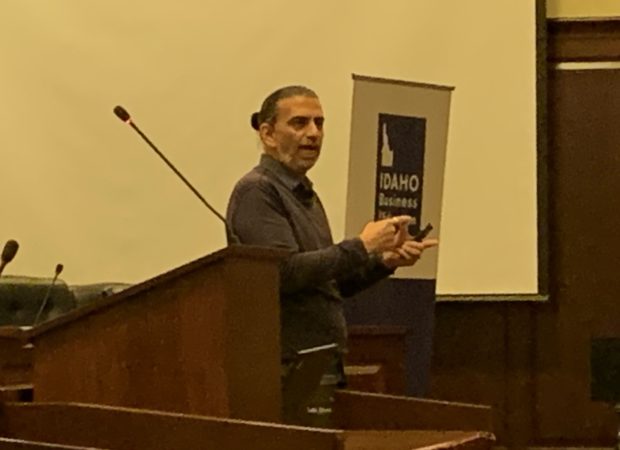Idaho’s demand for workers with computing skills is acute and growing — and schools need to adapt.
Schools need to put Advanced Placement computer science courses at least on an equal footing with AP history classes, a Google executive told a roomful of legislators and business leaders Monday. But schools also have to teach kids to think creatively, collaborate and solve problems.

“If you want to trigger me, call these ‘soft skills,’” Jaime Casap said at a Statehouse “legislative academy” sponsored by Idaho Business for Education.
Speaking to an audience of nearly 200 people — including Republican and Democratic legislators, state superintendent Sherri Ybarra and Greg Wilson, Gov. Brad Little’s education adviser — Casap played the role of a chief education evangelist, his job title at Google.
A first-generation American — who grew up living on food stamps in the rough Hell’s Kitchen neighborhood of New York City — Casap said he saw education as a means of escape. And while the traditional education model has done a “masterful” job of preparing generations of students, Casap said the system still needs to evolve.
“This generation is the first true digital generation, period,” he said. “They think about learning in a different way than we think about learning.”
It isn’t just that today’s students are more accustomed to technology. Today’s students are problem-solvers, Casap said. Adults shouldn’t ask students what they want to be when they grow up — a moot question in a world where many jobs of the future haven’t even been created. Instead, they should ask students what problems they want to solve, and how they hope to do it.
Hence the need to emphasize collaboration, creative thinking and problem-solving skills. The trick may come in trying to measure these skills, compared to standardized tests that measure more concrete skills. But if schools can evolve into an assessment model that measures 21st Century skills, with assessments that work more like a workplace performance review, the old-school standardized tests will probably become obsolete, Casap said.
For IBE, and its membership of 230 business executives statewide, the stakes in evolving education are high.
The state currently has 1,027 open computing jobs, Casap said. No other jobs are in higher demand, and the number of vacancies will only grow.
These open computing jobs pay $71,000 on average, compared to Idaho’s average salary of $43,000.
And meanwhile, in 2017, only 435 students graduated from an Idaho college with a computer science degree. Only 16 percent of these graduates were female.
